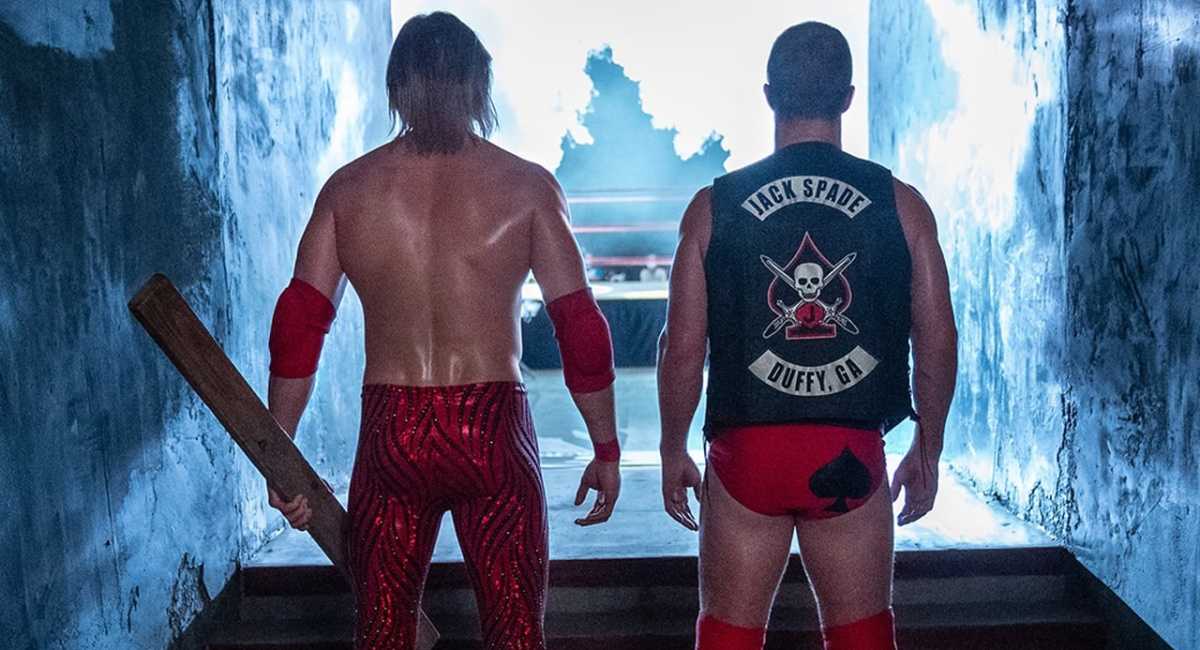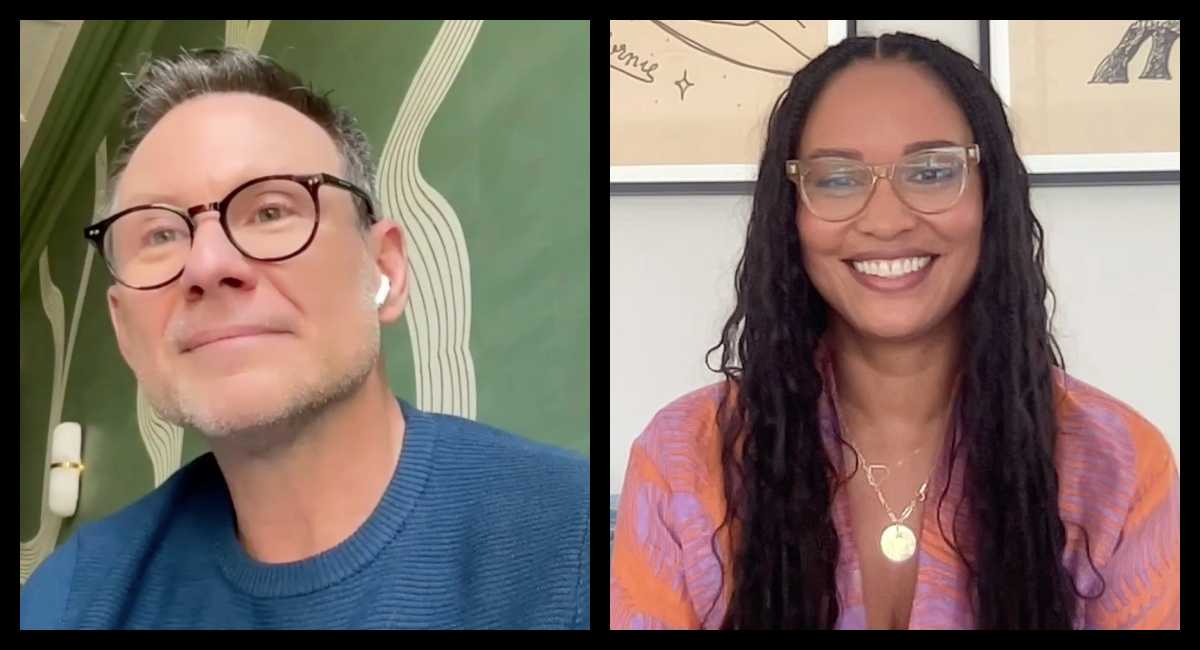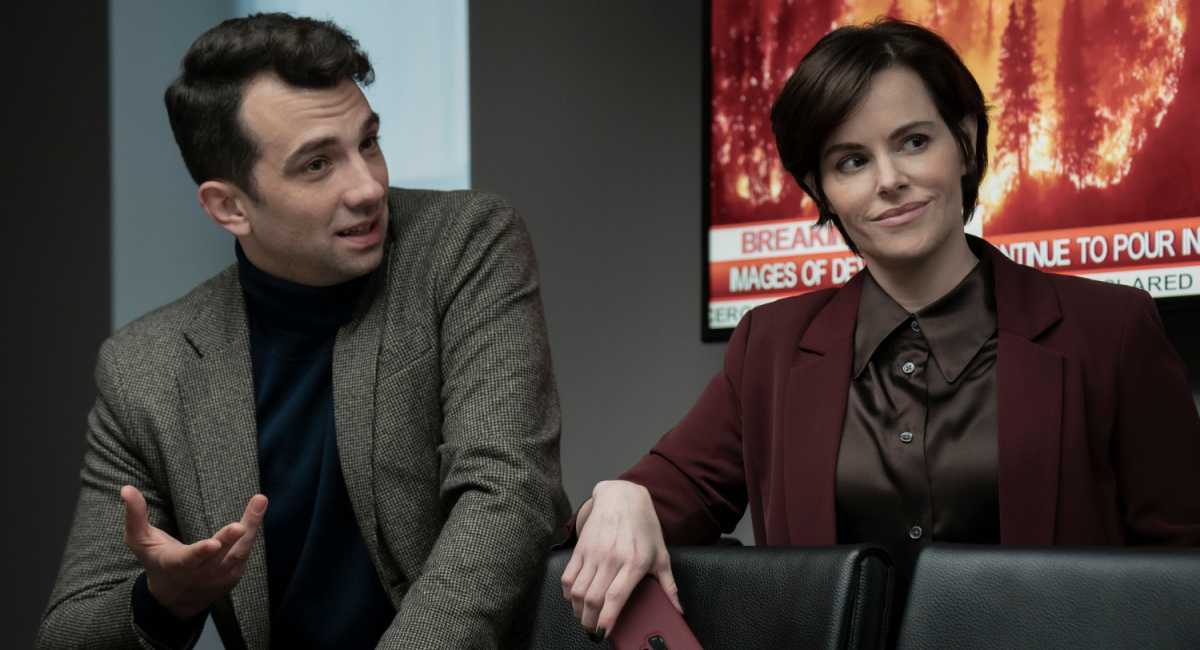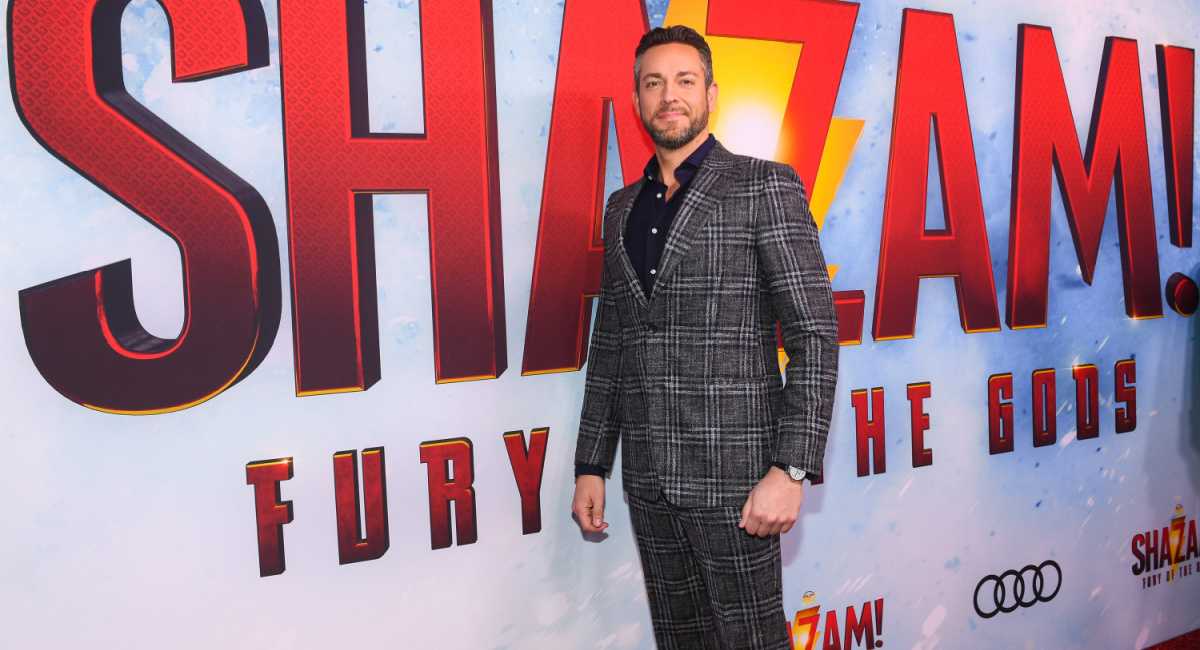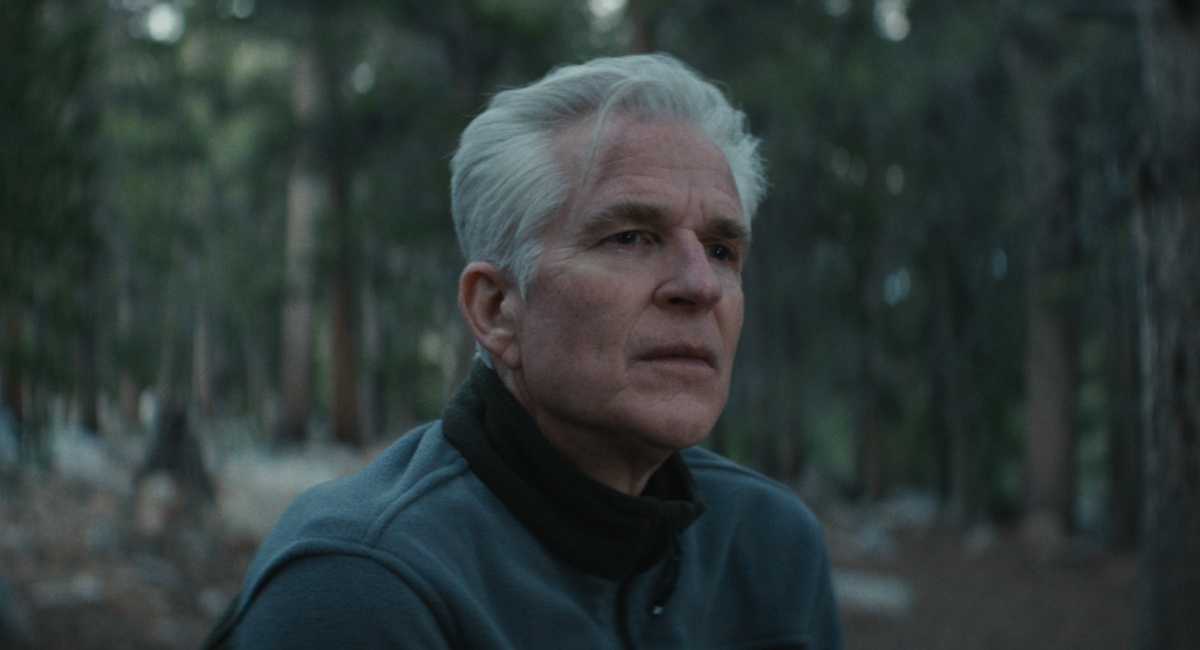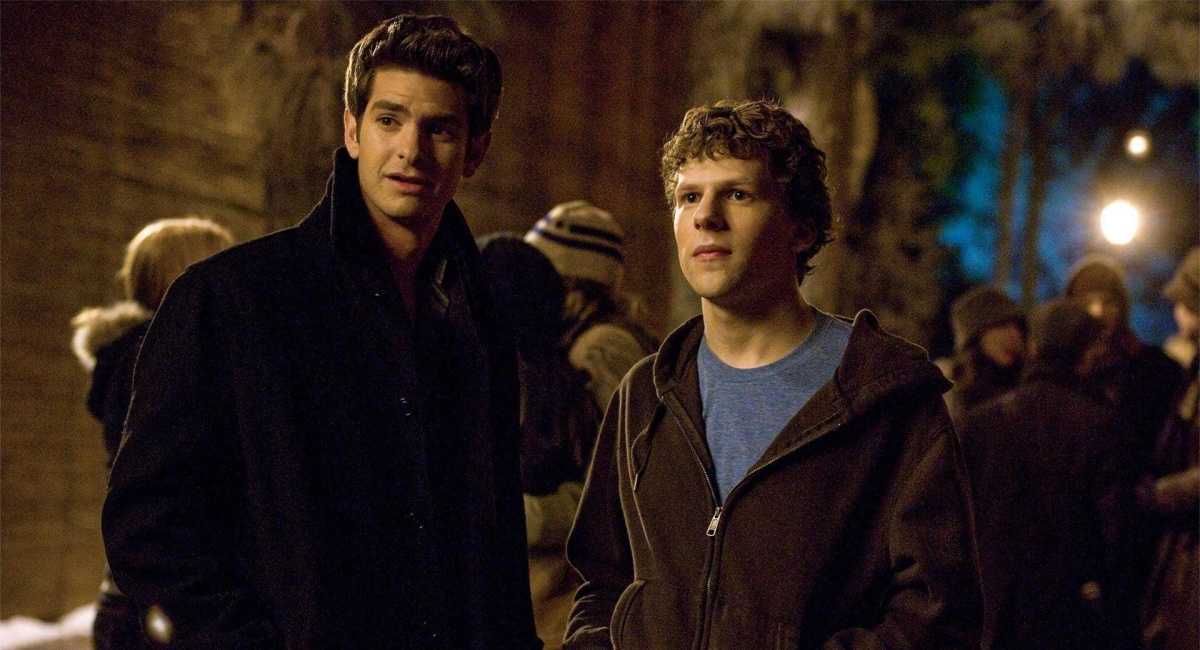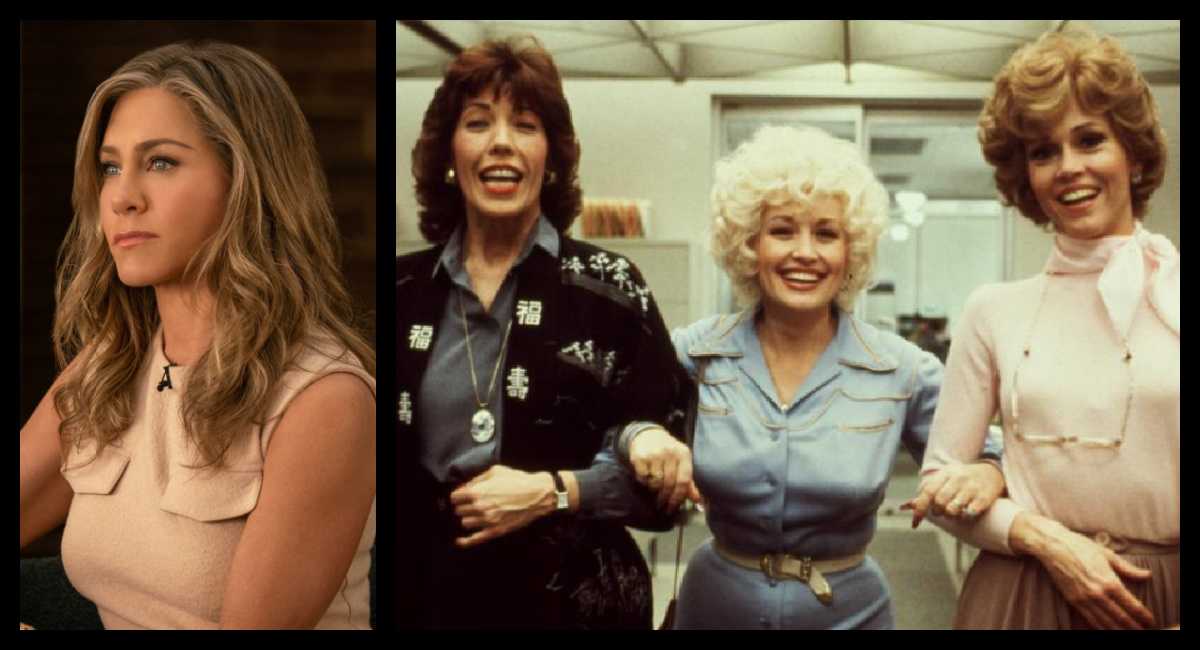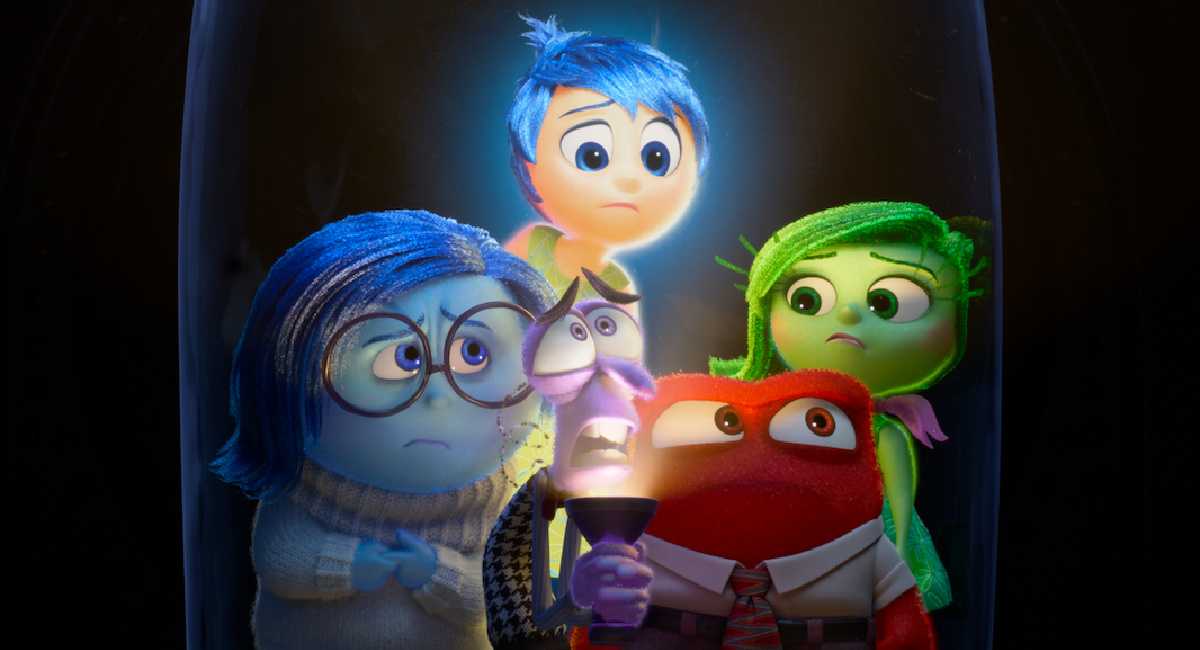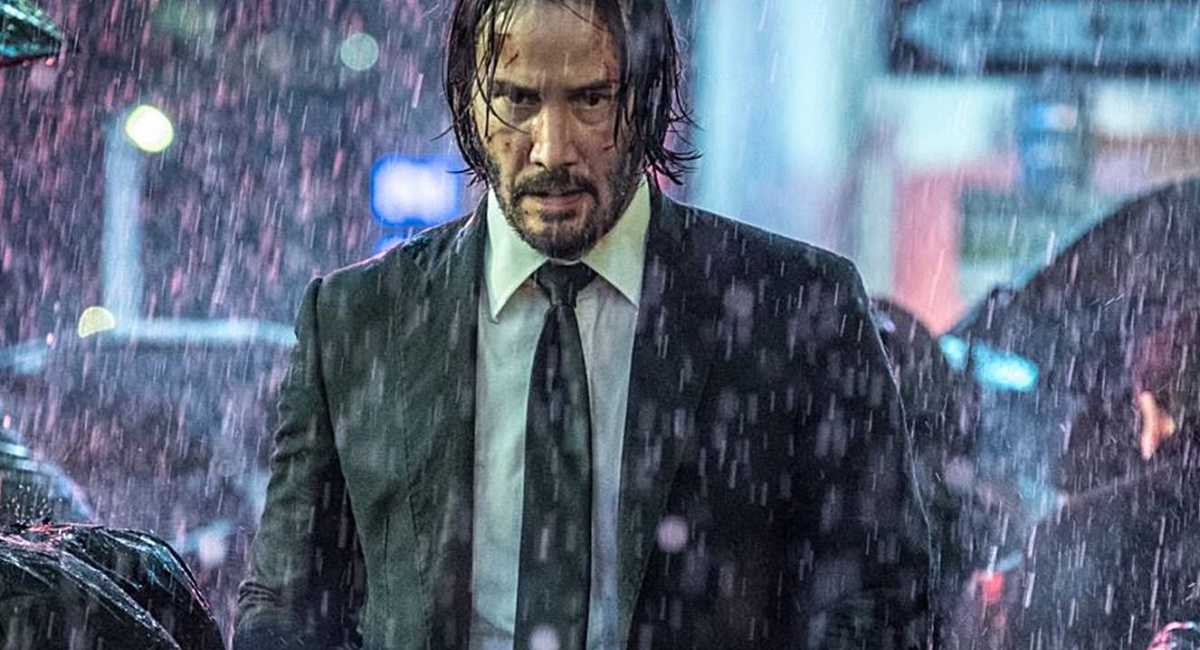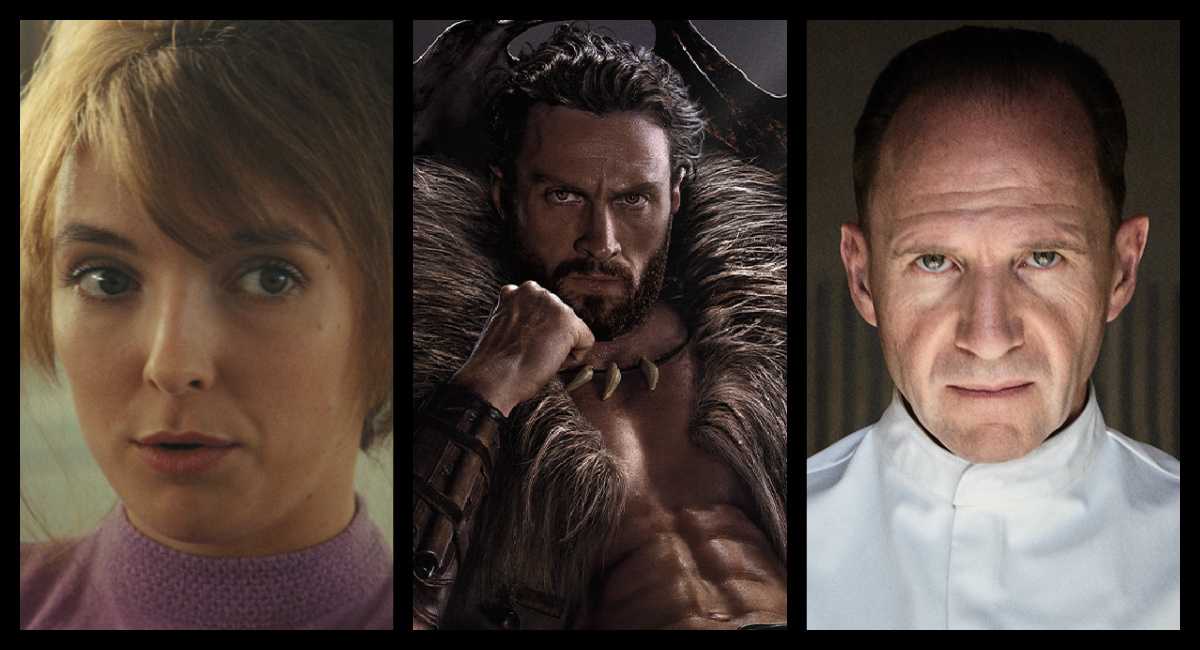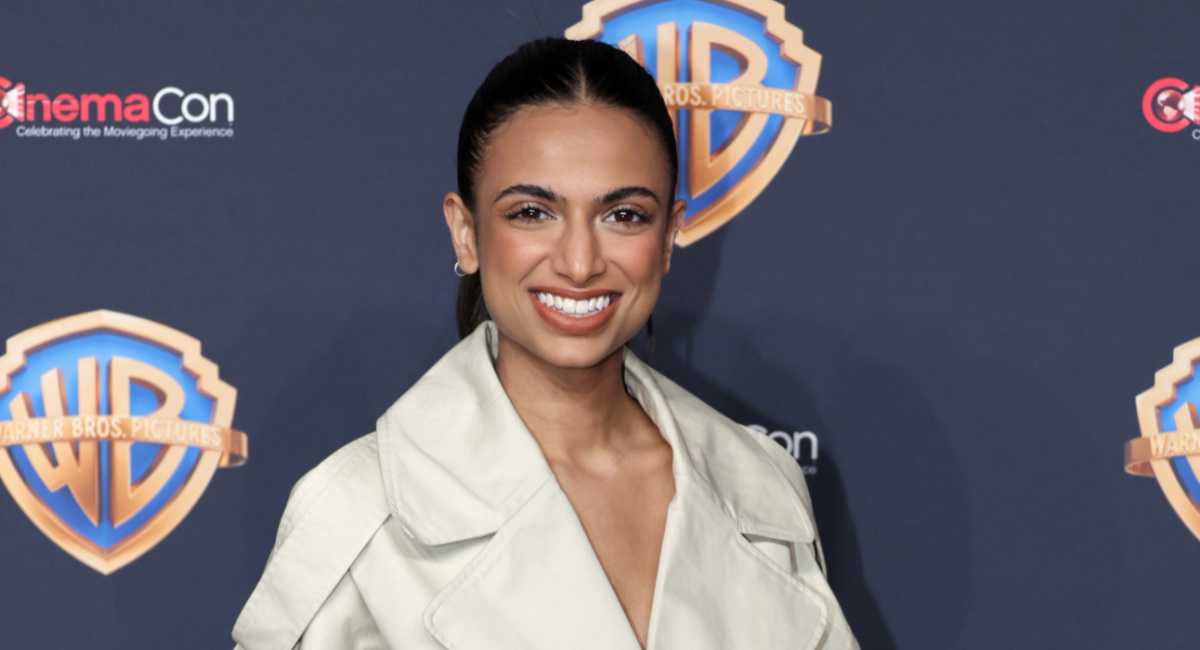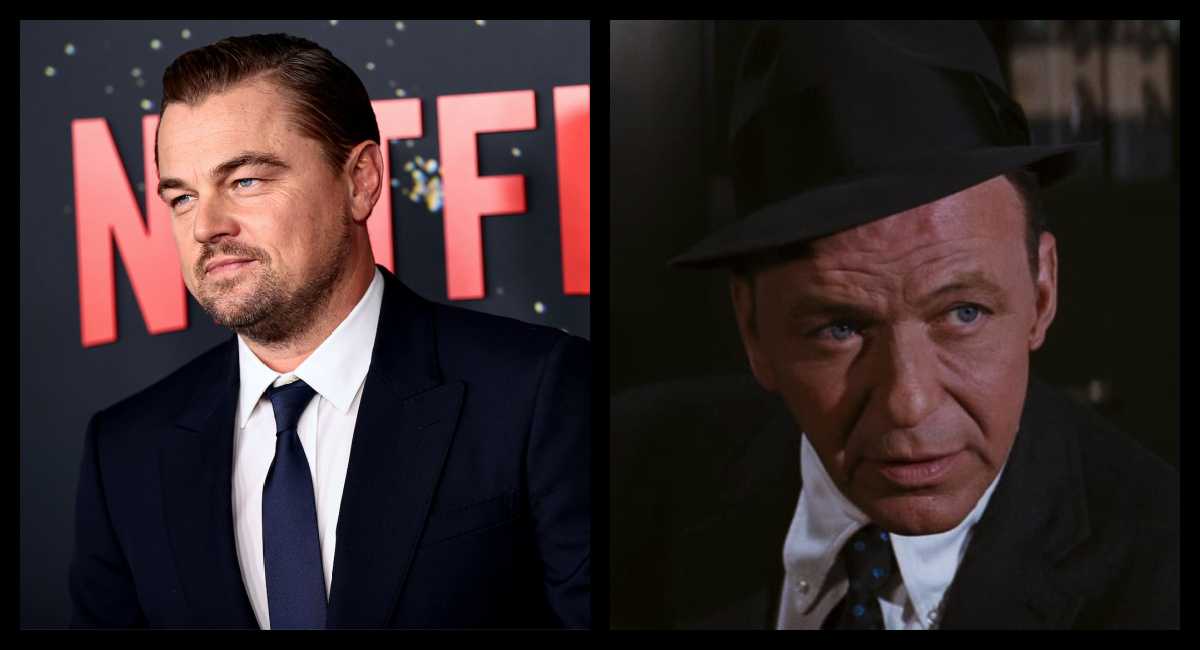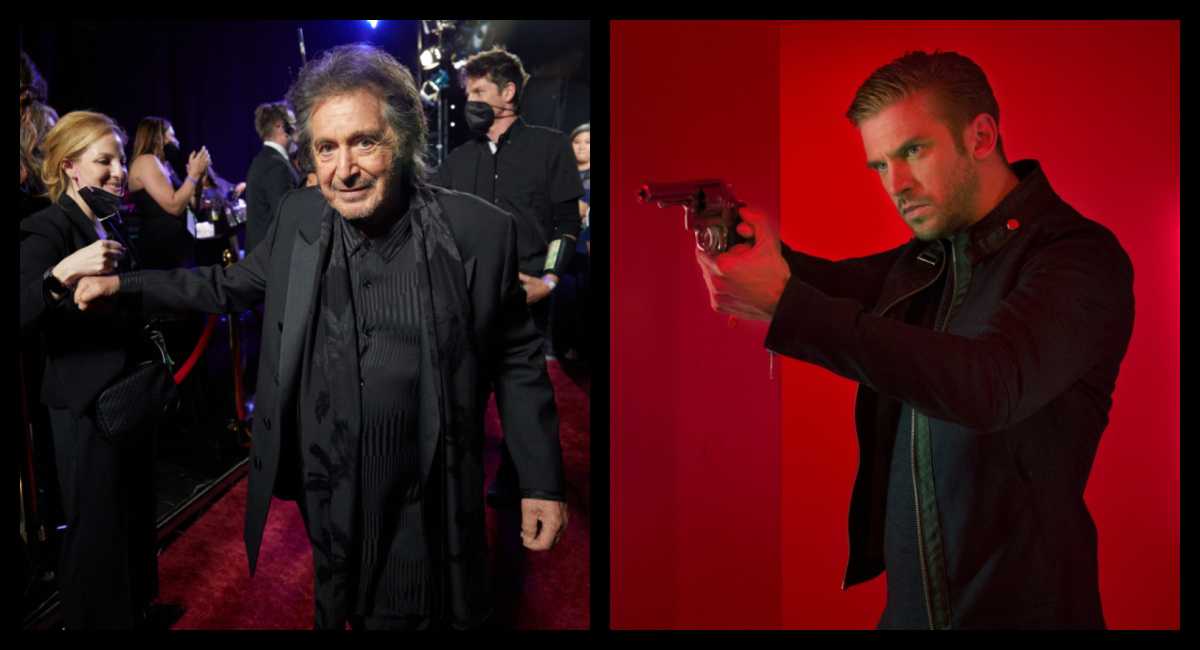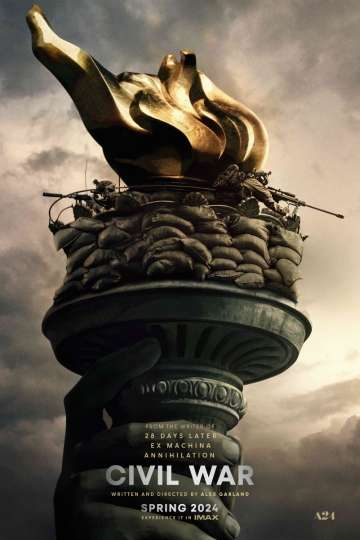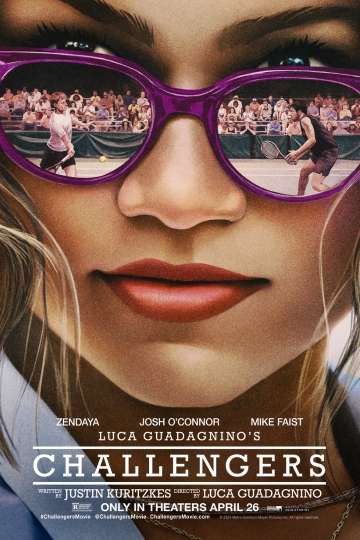‘Heels’ stars Stephen Amell, Alexander Ludwig, and Mary McCormack talk about their new TV series
The stars and writers of the series talk about the world of independent wrestling leagues and faithfully representing them on screen.
The new Starz dramatic series ‘Heels’ features Stephen Amell as a professional wrestler that’s known as a “Heel,” which means he’s the type of professional wrestler that fans love to hate. Amell and his co-stars and the show’s writers recently sat down with us to talk about their new series.
First, Stephen Amell and Alexander Ludwig talk about their characters.
Moviefone: Nice to see you guys. Steven, I read that you are an avid wrestling fan. Can you describe the difference between pro wrestling and these independent wrestling leagues?
Stephen Amell: They're all the same. Same size ring, same size everything. It's just that the guys up in the WWE might be wrestling at Allegiant Stadium later this month in front of 70,000 people, and we're putting our bodies on the line in front of anywhere between 50 and 700 people, but it's the exact same. It's the proving ground. It's where almost all professional wrestlers, and especially the ones that you see now on TV, they've all wrestled at a Duffy Dome somewhere along the way. Everyone has a Duffy Dome story, so it's no different. It's just kind of like the minor leagues.
MF: You know, I knew nothing about these independent leagues, and I knew nothing about a lot of these terms. So, Alexander, can you explain what a heel and a face is in wrestling?
Alexander Ludwig: Yeah. So, a face would be your hero in the ring, somebody that you cheer on, and you expect to win a lot of, you know, that's your protagonist and your heel would be your villain. The one that everybody loves to hate.
Amell: Yeah. The heel's more important. Okay?
Ludwig: Absolutely.
Amell: They only love the good guys as much as they hate the bad.
MF: And Jack is a heel.
Amell: He's the heel.
MF: He's the heel. He actually, what is the DWL mean to Jack? And I mean, actually also to Ace, but Jack, what is he, he is tasked with a huge job in keeping the DWL going, and why is it so important to him?
Amell: Well, his father started it. I mean, everything to do with the Duffy Dome, everything to do with the DWL and what it means to the community of Duffy, to the people there. It's not a lot going on in Duffy, there's some mediocre karaoke and there's a water tower and there's wrestling every weekend. So, it means a lot to him. It's a part of the community, but also, he loves his dad and both he and Ace love their dad, and it's what he built. And I'm sure that the first time that they saw it, they were little kids, who were wide-eyed and just that these wrestlers were probably larger than life to them. So, keeping it going and expanding it and making it something more dynamic is, it's really important to Jack, and eventually it becomes very important to Ace as well.
MF: Well, Alexander describe Ace to me because he's a really complicated guy.
Ludwig: That's why I loved him so much. Ace is, he's the baby face in the ring. He's the hero. He's the one who's the rock star. He's expected to get out and make it big, but inside of himself and outside of the ring, he's a complete mess. He's traumatized by his father's death, trying to find his place in the world. And that's so much what I love about this story in general is it shifts. Who can't relate to that, even if you don't know anything about wrestling? What's so great about this, and speaking as somebody who didn't know a lot about wrestling, when I read these scripts, I couldn't put it down because these characters, you're bound to see yourself in one of them, if not all of them and who can't relate to working your ass off to put food on the table or wanting more out of life? And Ace is simply that. He's an explosive personality and very self-destructive, and he was a dream role for me.
MF: I agree with you, because I am not a huge wrestling fan, but I was able to watch the first four episodes, and I can't wait to see the rest of the story now.
Ludwig: So, I love hearing that so much because it's exactly the experience I had.
MF: Stephen, Jack is also struggling. He's struggling to balance the Dome and his family, and he's also, maybe some people don't even realize that there's a story. There's a script for each wrestling match, and he's trying to keep a story going.
Amell: Well, he's trying to be everything to everyone, and he's trying to keep everything under his thumb. Wrestling doesn't have to be that scripted. The outcomes are predetermined, but the best promoters or the best organizers or the best people that run a wrestling league or federation let their talent do their thing. They let those wrestlers tell the story. So, he's very rigid with his scripts because he's still figuring out how to be ahead of the DWL because it was his dad for so long. He's been thrust into this position, so he's gripping a little too tight and you see that in his face. He would do well to relax a little bit.
Mary McCormack & Chris Bauer compare their familiarity with the independent leagues.
Moviefone: How familiar were you Mary with independent wrestling leagues before this?
Mary McCormack: Not very familiar with independent wrestling leagues or any wrestling league really. I mean, I didn't, my brother was a fan when we were little, so sometimes it would be on and I would see some of it and he would pretend to be different wrestlers, but not very familiar. So it was a lot to learn and a fascinating sort of look into a world I didn't know a lot about, but Chris was a much bigger fan.
MF: So, Chris, you're a fan of pro wrestling as well as independent wrestling leagues?
Chris Bauer: Yeah. In fact, I think I've certainly spent a lot more time in independent matches than I have in pro. I mean, I still consider it pro wrestling. I mean, Pro Wrestling Guerrilla, it's in the title "Ring Of Honor". And I got to know a lot of wrestlers at that level who are now entertaining millions at a bigger scale. And I always had enormous, right out of the gate, enormous respect for their commitment, their skill, their heart. And then outside of the ring, don't tell anybody, so many of these people, men and women alike were just so warm and open and accessible. It reminded me of the early days in the eighties when I was in high school and I got into punk rock and you can go see your favorite band and there were four feet away and they were pretty cool to talk to you afterwards. That's what I like about the indie wrestling. Well, same thing.
MF: So knowing so much about that world, how easy was it for you to fall into Wild Bill?
Bauer: Not that easy, because what if I didn't do it well? , I had so much respect for the reality of this world that I really, really, really wanted to make sure I dotted my I's and crossed my T's to honor it. And I did a lot of work to change my body. I did a lot of research and I really wasn't sure until the first time I opened my mouth as the character. And it turns out that the writing was good enough and the prep was good enough, that the character came to life and then basically dragged my ass through the series after that. Thank God.
MF: He's certainly a vivid character. And for you not knowing much about wrestling and these leagues, what type of preparation for Willie, because she's Willie, your character is very involved in the DWL.
McCormack: Yeah, she was very involved. I mean, I think most of the stuff I relate to with Willie is sort of managing in a world that's filled with men, which I, you know, certainly most women have had to do in their careers. I think in film sets, we do it a lot more. And I certainly did it a lot more, you know, years ago when it was almost all men. I definitely relate to that. I relate to loving I mean, for me, it's very similar to loving the theater and being obsessed with that and being only able to see yourself in one world. And I think Willie is tunnel vision is like that about wrestling. I think for her valet was, you know, she could be a valet, so she was a valet. Now she can do this. So she does this. She's just not leaving the Bill no matter what. And so I think I try to think about that obsession, that obsessive quality in her, then there's the whole other side of her, which I think is really interesting.
Michael Waldron and Mike O'Malley have done such a good job at painting, a sort of complex character in that her family life is definitely seems she loves them, but it's sort of secondary. And I don't know if she sort of stumbled into it or it happened by accident. I'm just looking forward to sort of exploring more of that too. It's been more [crosstalk] explored later in the first season.
MF: What is the relationship between Willie and Wild Bill?
McCormack: Well, she was his valet and they were also together romantically. So I mean, they were in love, I think probably he was her main love, her big love and broke her heart when he didn't take her.
Bauer: Yeah. That's what I was going to say. That Willie was Wild Bill's everything and that didn't last, but they came up together. I mean, to me, what's exciting about it, especially as Mary had been saying, you know, we're show folk where people who live, we exist to entertain you, both somewhat in real life, but also as these characters. And these two came together in the midst of that vocabulary as well. So, in my imagination, there's nothing like a romantic alliance that is also energized by a similar aesthetic and how many conversations they had about that sucks. That's great. And agreeing on that. And then when life happens and things change, you know, we go different directions, but I don't think either of the characters ever let go of what that original sense of connection and purpose was.
McCormack: I agree.
Bauer: And you feel that, you feel that now.
James Harrison and Allen Maldonado share how their pro football backgrounds compare to their wrestling in the show.
Moviefone: James, how familiar were you with the independent wrestling leagues?
James Harrison: To be totally honest with you I wasn't too familiar with independent wrestling leagues. I was more, from being a kid watching WWE, well WWF then, so I wasn't too familiar with it. I can't say that I was.
MF: Allen, can you describe your character Rooster and how he fits into the league?
Maldonado: Man, I am the child prodigy of the kind of wrestling that kind of is still in the independent leagues after all these years, even though he is an incredible talent. So he's dealing with that kind of frustration of not getting his just do just yet. So you kind of see him navigate in this independent league as best as he can while trying to really find a spot for him to shine within the league. So it's a kind of seesaw of emotions with Rooster.
MF: And how about Apocalypse, James?
Harrison: Apocalypse is, he's a been there, done that. He's been with league for a long time. I think he's more understanding because they were understanding with him through this process of rehab, recovery and so on and so forth. So he's more a level-headed guy that tries to talk to Rooster and get him to understand that it's not something that they're doing against you it's for the better and the benefit of the DWL and what they believe is best for the league.
MF: How much of the actual wrestling are you doing? Are there stunt people or are you doing that a lot yourself?
Harrison: I am doing 100% of my own wrestling. No one did any stunts for me and everything that you see is I.
MF: Well I know you played in the NFL, so did that help? And then what other preparation did you do to do these wrestling scenes?
Harrison: So for me being a former athlete, it made it a lot easier to actually get a grasp of what it is they were trying to do and put it into play and be able to do it safely because the guys that we learned from, they're excellent with giving us details and teaching us how to do these stunts and how to wrestle and do it safely. So being a former athlete, it was a lot easier for me to transition to that, especially when it came to actually taking the bumps and bruises.
So you actually have to hit that mat, and hitting that mat does not feel good. I mean, it gives very little. It is a hard surface and the closer you get to the edges, the more it hurts. So you have to be ready to take the bumps and bruises, especially when you're getting clotheslined two, three times by somebody that got say 22-inch arms, and you only weigh like 160 pounds. You know what I'm saying?
Maldonado: Also being a former athlete, you know what I'm saying? Because me and James, we won two Super Bowls together, and being able to transfer all of those years in the league and the NFL over to wrestling was pretty much easy.
Harrison: He likes to embellish a lot.
MF: Okay, so being tackled as a football player and slamming helmets and being smashed onto the green, the grass, is that a lot different than the mat, the wrestling mat?
Maldonado: It's similar. James will attest to that, but that mat, it has no give. There was a take where I get clotheslined by James at, what, I think he was at 235 at that time, and they had to do it like seven times and I made sure Pete, our director, I said, "If we got to do this an eighth, Pete, you're going to get up in here and get this clothesline. I got clotheslined seven times. We got it. We got it."
But no, the wrestling part was fun. That was living out your childhood dream. The eight-year-old jumping off of the couches. So being able to do the stunts, now I probably did about, I say 90% of my stunts. I didn't do all of them. They were doing some crazy stuff in there, but I did some crazy stuff too.
Kelli Berglund & Alison Ruff talk about playing women in the wrestling world.
Moviefone: Kelli, how familiar were you with independent wrestling leagues?
Kelli Berglund: I knew nothing about independent wrestling leagues going into this show. I knew nothing about wrestling, period. So it really was a total learning journey for me, which was really exciting because as an actor, what you want is to dive into something deep and immerse yourself in the knowledge of something new potentially. And that's exactly what I did. And I learned so much, I'm still learning so much about wrestling, but I have a huge newfound respect for the people that do this.
MF: So you probably also do not know what a valet is?
Berglund: No.
MF: Me neither. So can you tell, can you just let all of us out here who don't know what that is, what is the valet ?
Berglund: A valet by definition is a wrestler's manager, but I like to consider a valet kind of like a cheerleader as well. So, in terms of being Ace's valet, she'll run out into the ring with him and get the crowd going because Ace is a face. So therefore we want the crowd to love him and cheer for him. Whereas if he was a heel, I would run out and insult the crowd and, and want them to hate him and hate us. So I stand outside the ring and cheer him on and want him to do his best. But I also think valet have a pretty extensive knowledge of wrestling as well, because she will give him advice as to what she thinks would be the best moves for him or what would play really well. So, it's not just arm candy that runs out in the ring with him. There is a bit of wrestling knowledge that comes with it.
MF: And Alison, Stacy knows a lot about wrestling because she's married to Jack. How does Stacy feel about independent wrestling and how it affects her family?
Alison Luff: I think going into her marriage, she knew that she is marrying into a family that is immersed in wrestling that runs this league. I don't think she necessarily saw her life. I don't necessarily think that she saw her life like this and saw her being so involved. Do you know when they first got together, they got together in college. This was when Jack's father was still running the league. And I think that we watched her start to navigate just how much their family is involved. And I enjoyed that aspect. I enjoyed watching her balance, the hardcore being involved in wrestling and holding her husband accountable for also giving that same attention to her family and her marriage.
MF: What is that dynamic between Stacy and Jack? I mean, I loved the financial aspect because it's so true.
Luff: Yes. I mean, I call Stacey, the queen of accountability, they're best friends. I think they have a very strong marriage. They're still very, very much in love, but they're also about 10 years into their marriage. They've got an eight year old son. They're not a newlywed couple anymore. And I like to watch that dynamic versus the dynamic of ACE and Kelli or sorry, ACE and Crystal. But like any good marriage, they hold each other accountable for their actions and they challenge one another and they want to see their partner thrive. She wants to see her partner thrive, Jack thrive and what he does in his wrestling, because that's what makes him happy. But she's still as the mother and the wife is going to prioritize their home and make sure that he's doing so as well.
MF: Kelli, let's talk about women in wrestling because valets are usually always women. And then also your character Crystal, she actually wants to wrestle, but nobody pays any attention to that.
Berglund: Yes. So, as we see the serious progress, I think we get to learn a little bit more about Crystal and what big dreams she has and definitely more of her athletic abilities that should be showcased, but hopefully get way more showcased later on.
MF: Why is it that women are just not, they're kind of neglected? I mean they're relegated to be the valet, but they can be in the ring.
Berglund: No, I think it gets a little muddy because I'm not only Ace's valet, but also his girlfriend, a fleeing in a sense. So I think because Jack wants to keep him so focused on his career and being a good wrestler and playing to the crowd and having them love him that the opportunity almost is a threat to Ace. If I was to also wrestle and because he's a very emotional guy, I mean, the men in the show definitely act out on their emotions. And I think the women are the ones that are a lot more level-headed in their decision-making. So I think it would totally throw him off. And unfortunately that's at the expense of Crystal and that's why she's putting this place at the start. Let's keep him happy. She'll be the cute valet. That'll be great. But like I said before, she sees herself way beyond this. And it's just a matter of the opportunity presenting itself and proving it to Jack, including it to all these people that she could absolutely be right there with them.
Michael Waldron and Mike O’Malley talk about their work behind the camera.
Moviefone: Michael, I know you probably best for like fantasy and adventure type series. So where did the idea for sports drama come from?
Michael Waldron: Well, I mean, oddly enough, I think Heels probably has more in common with those fantasy series and stuff than you might think, because yes, wrestling is an athletic endeavor, but it's also one that involves fantasy. It's an artistic endeavor. It's a story. It's characters telling a story in the ring. And so I was really dry... I love wrestling, and that was kind of... I think that there's a lot of similarities between pro wrestling and superhero comics, and superhero movies. The very sort of binary nature of good versus evil, these mythical figures going toe to toe. I was very drawn in this show in just what happens sort of behind the curtain of this world and just exploring that. Who are the people telling these stories? Because that's what they are. They're really amazing stories and wrestling is an incredible artistic endeavor, as well as an athletic.
MF: Mike, you have many different jobs on this show, so let's start with show runner. What are your responsibilities as show runner and how do you collaborate with Michael in that position?
Mike O’Malley: Well, the first job as show runner is don't mess up the great script. That's basically the job. Michael has done the hardest thing that there is to do in our business, which is come up with an original idea, original setting, original characters. And that's what I got stoked about when I read these scripts, I was like, "Oh man, if we cast this right, we can do this." And it's really just hiring the best people, it's... Showrunner, I understand why the term exists and I'm happy to call myself one, but it's kind of a conductor. You hire amazing people who do their jobs incredibly well, and you get a little bit of this, little bit of that, little more of this, little more of that, and just making sure that there's a cohesiveness, I think, to what it is that you're trying to do.
And so the challenge there is hiring great people and continuing to motivate them and bringing the best out of them. It's like a head coach of a football team, I think. The great part is that you get to be the coach and you get to call some plays. The part of it that's tough is that sometimes people don't necessarily like the play that you're calling and how are you going to manage that? But that's the job.
MF: Speaking about casting, you're also an actor in this series. Tell me about Charles Gully and the FWD.
O’Malley: Well, Charlie Gully is a great character that Michael created that evolved a little bit to the limits of my acting ability. He is a rival promoter to the DWL, who takes it quite personally when Jack makes an offhand comment criticizing his business and how he takes that personally is he decides he's going to get back at Jack through doing whatever he can do to undermine the DWL, the Duffy Wrestling League. That character is a fun character to play when you give someone motivation where someone feels as if they have been slighted or felt that they've been disrespected, how they write that wrong. Whenever you have a character who's trying to right a wrong that he feels is a really unfairly put upon him, it gives you an incredible strong objective of play, and that was fun.
'Heels' premieres on Starz on August 15.


